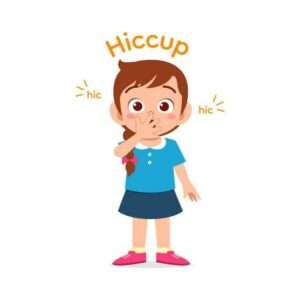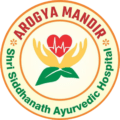Hiccups - (Hikka)

Ayurveda, the ancient Indian system of medicine, offers a unique perspective on various health issues, including something as common as hiccups. In Ayurveda, hiccups are not merely random spasms but are often considered signals of imbalances in the body’s doshas, primarily Vata. In Ayurveda, hiccups are known as “Hikka” or “Hikka roga.”
Understanding Hiccups in Ayurveda
A. Ayurvedic Perspective on the Causes of Hiccups
- Imbalance in Doshas: Hiccups are primarily associated with an imbalance in Vata dosha, one of the three fundamental energies in Ayurveda.
- Vata’s Role: Irregular movement of Vata is considered a key factor leading to hiccups.
- Diaphragm Dysfunction: Ayurveda attributes hiccups to irregularities in the movement of Vata affecting the diaphragm, the muscle crucial for breathing.
- Dietary Factors: Excessive consumption of dry and cold foods is believed to aggravate Vata, contributing to the onset of hiccups.
- Emotional Stress: Emotional factors and stress can disrupt the balance of Vata, making individuals more susceptible to hiccups.
- Temperature Fluctuations: Sudden changes in temperature, especially exposure to cold, are associated with disturbances in Vata and may trigger hiccups.
- Irregular Eating Habits: Ayurveda highlights that irregularities in eating habits, such as skipping meals or consuming meals at irregular intervals, can contribute to Vata imbalance and hiccups.
Doshas and Their Role in Hiccups
In Ayurveda, hiccups are closely related to the imbalance of Vata dosha. Doshas are the fundamental energies that govern various physiological and psychological functions in the body. Vata dosha, composed of air and ether elements, is responsible for movement, including the movement of bodily functions and fluids.
When there is an irregularity or excess of Vata in the body, it can affect the normal functioning of the diaphragm, the muscle responsible for breathing. This disruption in the diaphragmatic movement is considered a key factor in the manifestation of hiccups. The diaphragm, being a crucial respiratory muscle, experiences spasms or involuntary contractions during hiccups.
Ayurvedic Remedies for Hiccups
Herbal Remedies
Ayurveda offers several herbal remedies to address hiccups, focusing on balancing the aggravated Vata dosha. Here are some commonly recommended herbs:
- Ajwain (Carom Seeds): Chewing a small amount of ajwain or swallowing a teaspoon with warm water is believed to help relieve hiccups.
- Saunf (Fennel Seeds): Chewing saunf or sipping fennel tea may have a soothing effect on the digestive system, potentially alleviating hiccups.
- Peppermint: Peppermint tea or oil, known for its calming properties, may help relax the diaphragm and alleviate hiccups.
- Cardamom: Consuming cardamom powder mixed with honey is thought to have anti-spasmodic effects, potentially easing hiccups.
- Ginger: Ginger tea or ginger-infused water is believed to possess anti-spasmodic properties, which might be helpful in stopping hiccups.
- Tulsi (Holy Basil): Chewing fresh tulsi leaves or drinking tulsi tea is considered beneficial for its calming effects on the digestive system.
Lifestyle Changes to Prevent Hiccups
Ayurveda suggests certain lifestyle changes that may help prevent hiccups or reduce their occurrence. Here are some recommendations:
Dietary Habits:
- Moderation in Eating: Avoid overeating, and consume meals in moderate quantities.
- Slow Eating: Chew food thoroughly and eat slowly to aid proper digestion.
- Avoid Overly Cold or Hot Foods: Extreme temperatures in food and beverages can aggravate Vata dosha, contributing to hiccups.
Hydration:
- Sip Warm Water: Drinking warm water throughout the day can help balance Vata and support digestion.
Breathing Exercises (Pranayama):
- Deep Breathing: Practicing deep breathing exercises can help calm the nervous system and prevent sudden diaphragm spasms.
Posture:
- Correct Sitting Position: Maintain proper posture while sitting, avoiding slouching, to support healthy digestion.
Avoiding Stress:
- Stress Management: Incorporate stress-reducing activities such as yoga, meditation, or walks to maintain overall well-being.
Regular Routine (Dinacharya):
- Consistent Daily Routine: Follow a consistent daily routine to promote balance in bodily functions.
Sleep Hygiene:
- Adequate Sleep: Ensure sufficient and quality sleep to support the overall health of the nervous system.
Avoiding Excessive Talking While Eating:
- Mindful Eating: Be mindful of your eating habits, and avoid excessive talking while eating to prevent swallowing air.
Dietary Recommendations
Ayurveda provides dietary recommendations to help manage and prevent hiccups. These suggestions focus on balancing the doshas and supporting overall digestive health. Here are some dietary guidelines:
- Avoid Excessive Intake: Consume moderate-sized meals to prevent overeating, which can disturb digestion. Choose Digestive-Friendly Foods: Opt for easily digestible foods, such as cooked vegetables, well-cooked grains, and soups.
- Warm Foods: Include warm, cooked meals as they are easier on the digestive system.
- Spice Incorporation: Ginger: Include ginger in your diet, as it is known for its digestive properties and can help alleviate hiccups.
- Herbal Teas: Fennel or Cumin Tea: Sip on teas made with fennel or cumin seeds, as these herbs can aid digestion.
- Hydration: Warm Water: Drink warm water throughout the day to support digestion and maintain hydration.
- Avoid Triggering Foods: Limit the intake of excessively spicy or hot foods, as they may aggravate Pitta dosha.
- Avoid Overly Cold Foods: Minimize the consumption of very cold beverages, as they can disturb the digestive fire.
- Avoid Gas-Producing Foods: Reduce intake of gas-producing foods, such as beans, cabbage, and carbonated drinks.
FAQs
-
- Yes, Ayurveda aims to address the root cause of hiccups, offering a holistic approach to chronic cases.
-
- The effectiveness of Ayurvedic remedies for hiccup is instant but in some cases up to 3 days are required
- Ayurvedic practices can be adapted for individuals of all ages, with adjustments made based on individual health conditions.
Uniqueness of our therapies
At Arogya Mandir – Shri Siddhanath Ayurvedic Hospital, Miraj, we delve deeply into the ayurvedic examination of each patient. Utilizing noninvasive Ayurvedic diagnostic tools such as Ashtavidha Parikshan and Nadi Parikshan, we precisely determine the pathogenesis of the disease and then prescribe therapies tailored to the specific condition. This approach leads to expedited results.
Our therapies boast the following distinctive features:
– Tranquil and hygienic therapy rooms staffed with trained therapists in a positive environment.
– Selection of appropriate massage oil based on the patient’s Prakruti and the condition of the disease.
– Complimentary Prakruti and Dhatu Sarata examinations before the commencement of therapies.
– Authenticated procedures for each therapy.
– Judicious use of herbal medicines and instruments during the therapy sessions.
– Specialized rooms equipped with all facilities for inpatient care.
Feel free to share this article at no cost.
Copyright message – Dr. Prashant Chivate has published this article on drchivateayurved.org for informational purposes about diseases. Any other use of this article is strictly prohibited. All rights reserved.
